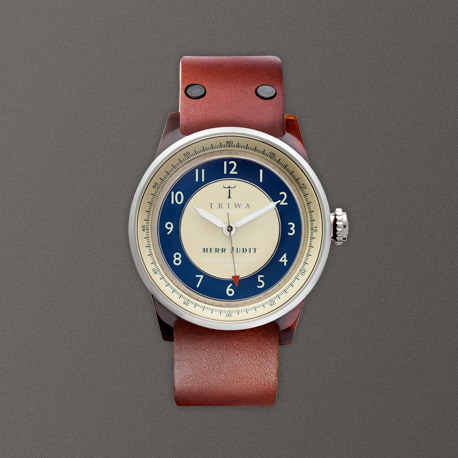Interview: World Chess Championship’s Judit Polgar
The female chess player on her illustrious career and transitioning to commentating
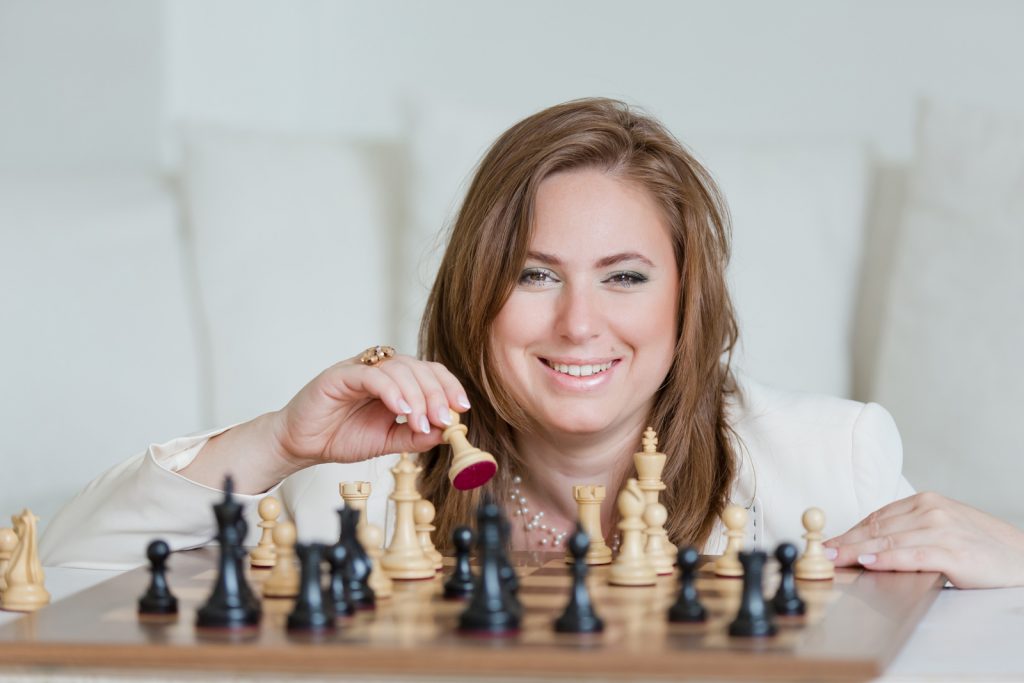
Despite her myriad accomplishments, including election as the Woman Chess Player of the Century back in 2005, nothing quite sums up the inspirational power of Grand Master Judit Polgar. In the world of chess, she’s accrued most important title: from prodigy to champion. She drummed up interest for the game around the globe. She defeated some of the biggest names—household names in a competitive world that doesn’t produce many such names—and their records. Widely accepted as the best female chess player in recorded history, one can easily drop the gender from that statement and refer to her as one of the best. Two years ago, she retired from competition, but now Polgar returns in another way that will maximize her skill sets. She’s the official commentator at this year’s World Chess Championship taking place in NYC from 11-30 November. There, she’ll decipher the moves and strategies of Magnus Carlsen and Sergey Karjakin. Before the tournament commenced, we spoke with Polgar about the importance of it all.
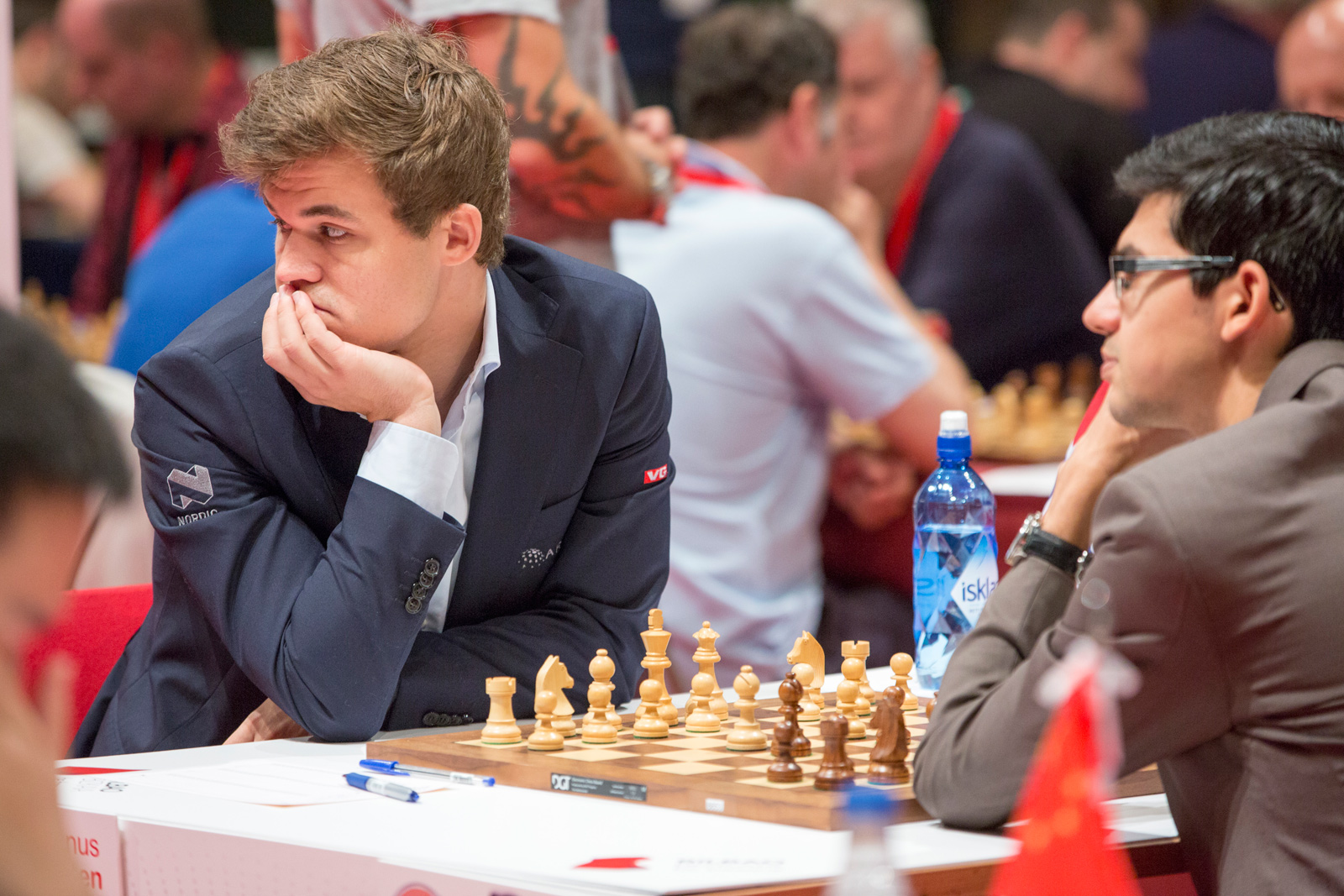
This is the first time you’re commentating for a major event. How do you approach it? How do you make your commentary appeal to both the casual and devout viewers, as well as amateur and professional players?
It’s going to be a big challenge for me. But it’s a great motivating factor that I know both players. I’ve known Magnus from his childhood. He was a child prodigy. I watched it unfold. It was the same with Karjakin. I believe that for the audience the best way to give the commentating is to avoid going into the deep, deep details. I do hope to capture all the interesting moments. I want to explain these in a way that people will feel just how interesting and colorful it all is.
This game is something very special. Yes, it’s an experience for those who understand, but there is much more to the game than the few hours. In the beginning, the matches will be shorter, as both test one another. They’ll be small fights. These two have history of playing with each other; there’s a psychological background. All the preparation they’ve both been making, it’s very deep and there will probably be a lot of surprises on the board. This is definitely a battle of brains.
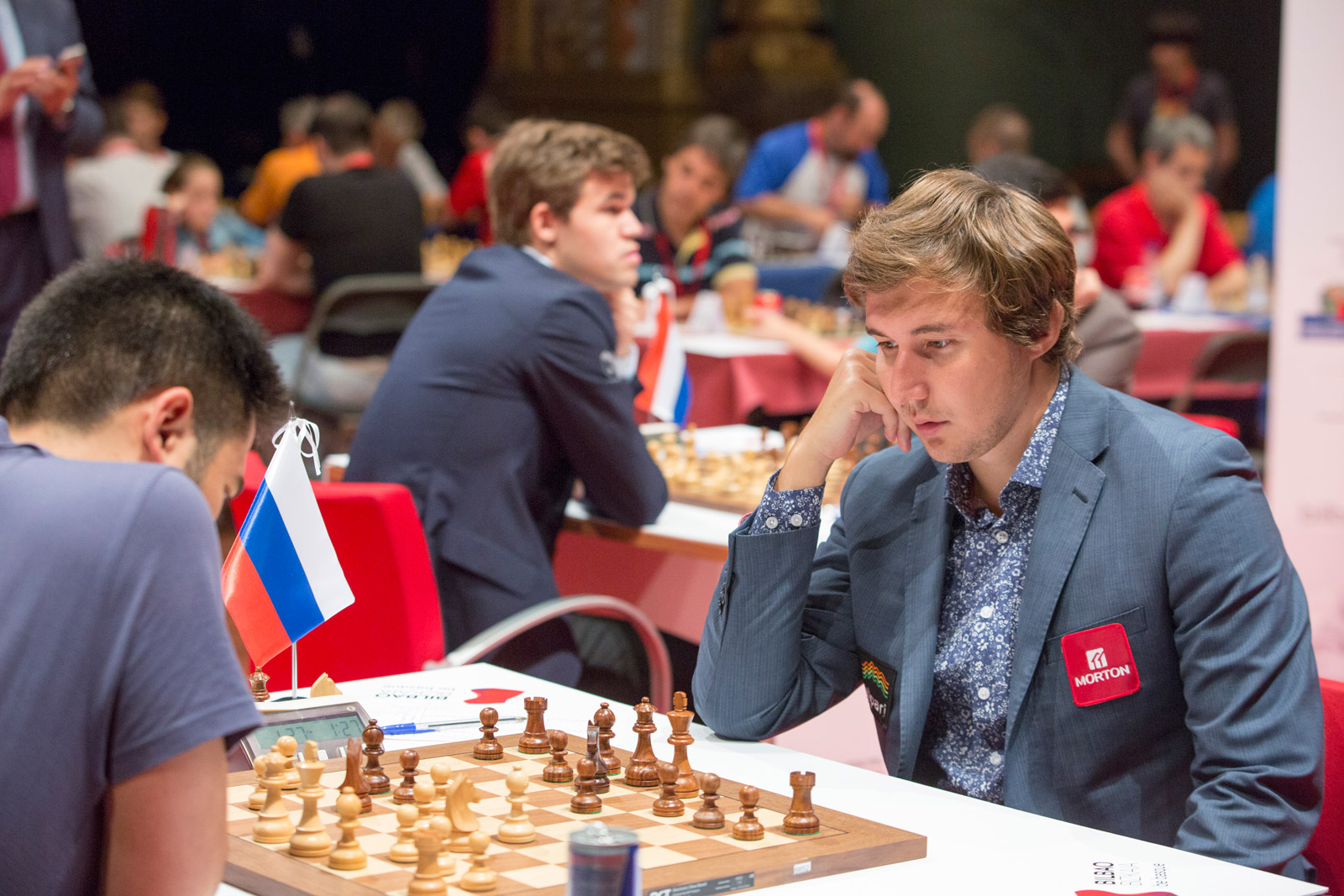
Can you talk about the global importance of the World Chess Championship?
I think at the moment Karjakin is one of the players who can give Carlsen the best challenge. This will be Magnus’ third time. Beyond that, it’s interesting that this is in New York. It’s very special for the chess world and it’s going to be spectacular. Magnus is a great champion for chess. He brings a freshness to game. It’s in his personality, and his approach to the outside worlds, being open to things like modeling. But with Karjakin, we have someone who is extremely motivated. He has been preparing for this moment for his whole life. He’s not a challenger by chance. They’re also two players who both come from the digital age. When they started to develop in this sport, the preparation was developing as well. They’re using a different database. They’re using different engines. There’s a whole new attitude toward preparation.
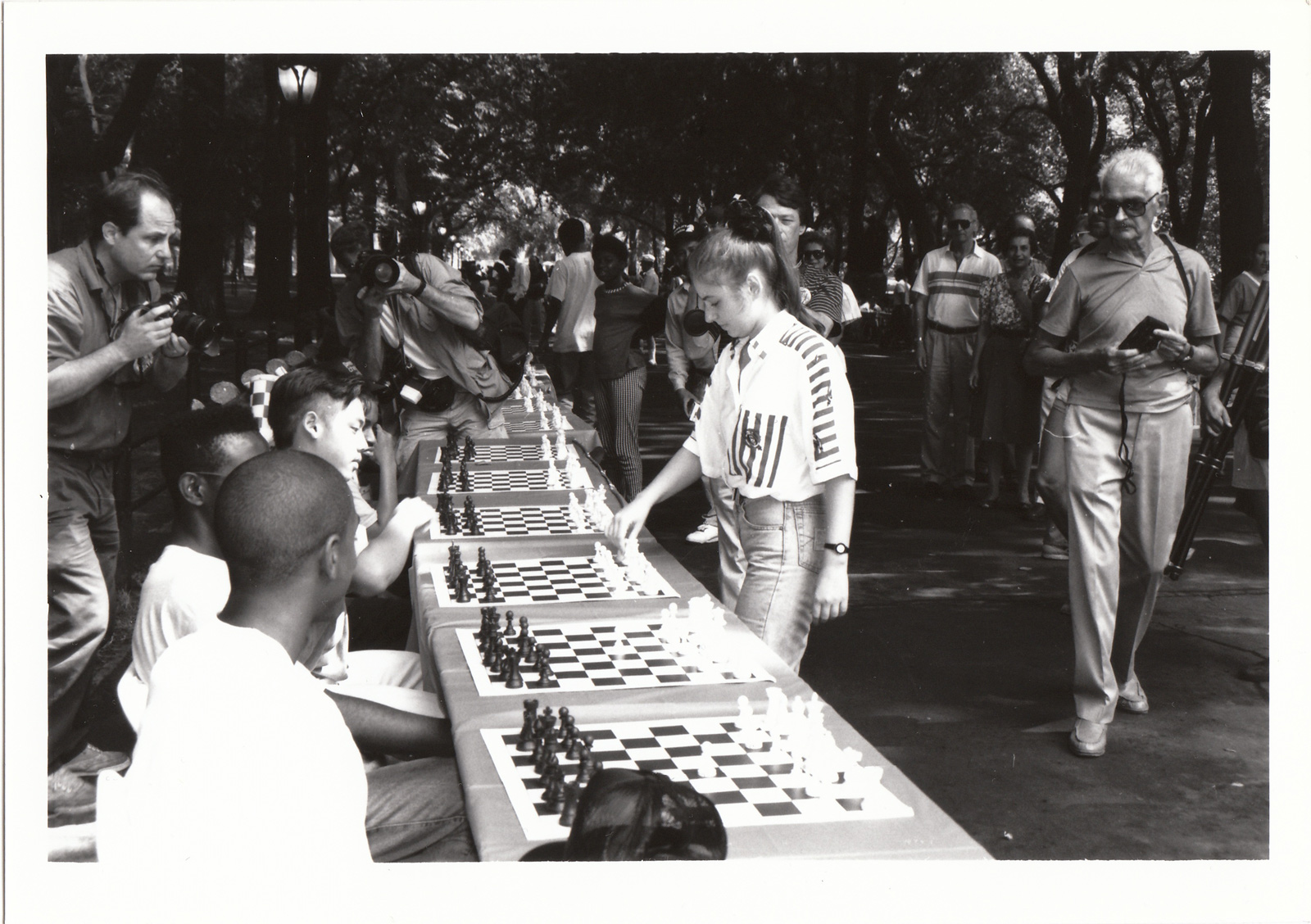
You’re one of the best chess players in recorded history. Did you feel immense pressure with that title while you were competing?
It became so natural that it was like a native language for me to play chess
My life story is very special. I was raised with a special family as both my parents are teachers. They decided before I was born that I was going to be a chess champion. It was not conscious for me and my sisters’ development. We didn’t go to school, we were home-schooled with a focus on chess from a very young age. I started at five. I had a gold medal in olympics at 12. At 14 or 15 I had my career set before me. Because I started so early, I had this daily training. It developed a focus. It became so natural that it was like a native language for me to play chess. That’s why I didn’t feel pressure. I got in amazing tournaments and won. Experts couldn’t follow the speed I was improving at. I broke Bobby Fischer’s record to become the youngest grand master. At some time there are expectations which you have to handle. I was lucky to have a family supporting me all the time. Later on it was my husband. But the pressure is something you have to get used to and deal with.
And then, you’re the best female player in the history of competitive chess. Do you feel that role model-like pressure along the way?
Chess is definitely a male-dominated sport—up to today practically. Sometimes I felt that people wanted to put pressure on me regarding this. That it should be on my shoulder. I should feel this responsibility and be a role model. I am an example for girls. But, I was always trying to focus on my game. How can I improve my chess? That kept me motivated. That’s how you succeed. You face your own challenges.
In chess, it’s very clear that if you make a mistake you are punished; if you play well, you win
What was it about this game that was so alluring to you? How did it appeal to you so young and stay with you for so long?
I love chess very much. I love the game, the challenges. I could motivate myself as I was curious about how to improve every game. In chess, it’s very clear that if you make a mistake you are punished. If you play well, you win. It’s not that simple but it is much more visible in chess than in other sports. I like to win. It gives you energy. But I also liked the artistic part. I was kind of well-known for my aggressive style and making unexpected moves and combinations and decisions. Quite a lot of times it worked out the way I wanted. The creative part of chess gave me special moments.
Let’s talk about the overall perception of chess around the globe. Over the years, have you seen the audience change?
I think the audience is growing and chess in changing in many ways. First, there’s been huge change in the last decade when internet came to our everyday life. It’s the only sport which you can enjoy, maybe even more so, from outside of the playing hall. It’s available from home or any convenient place. With a laptop or smartphone you can follow the game live. This match, however, will be very special. It’s going to be broadcast in virtual reality. It will allow you to feel that you are really sitting there following every movement.
Even without the VR part, chess is a game that many people who follow like to comment and analyze and look at mistakes afterward. They observe and dissect these fantastic amazing communications or strategies. With this, the audience became much larger. Also, in the last five to seven years there’s been huge improvement to broadcasting chess, from life transmission to interviews and more. Even films, like “Queen of Katwe,” which came out in New York this September. There are amazing stories in chess.

In a history of important tournaments and games, was there a single game where you felt like you were dominating the world?
I am very fortunate. I have quite a few to select from. One of the most important games was when I was successful against Kasparov and I beat him. I had other big moments. When I beat Magnus Carlsen it was a big thing. I won against [GM Vishy] Anand, it was one of the best games of my life, in 1999, before he was the world champion.
What do you say to people who are interested in taking up chess? Any advice?
It is a good game if you want to spend a little time with a brain teaser or a challenge. To learn the basic rules you can do so in 15 minutes. But, it is endless to master it. If you try, you can get to a level where you can really enjoy it.
Headshot images courtesy of Judit Polgar, The Bilbao Chess Grand Slam Masters Final 2016 images courtesy of the Maria Emelianova Photography


